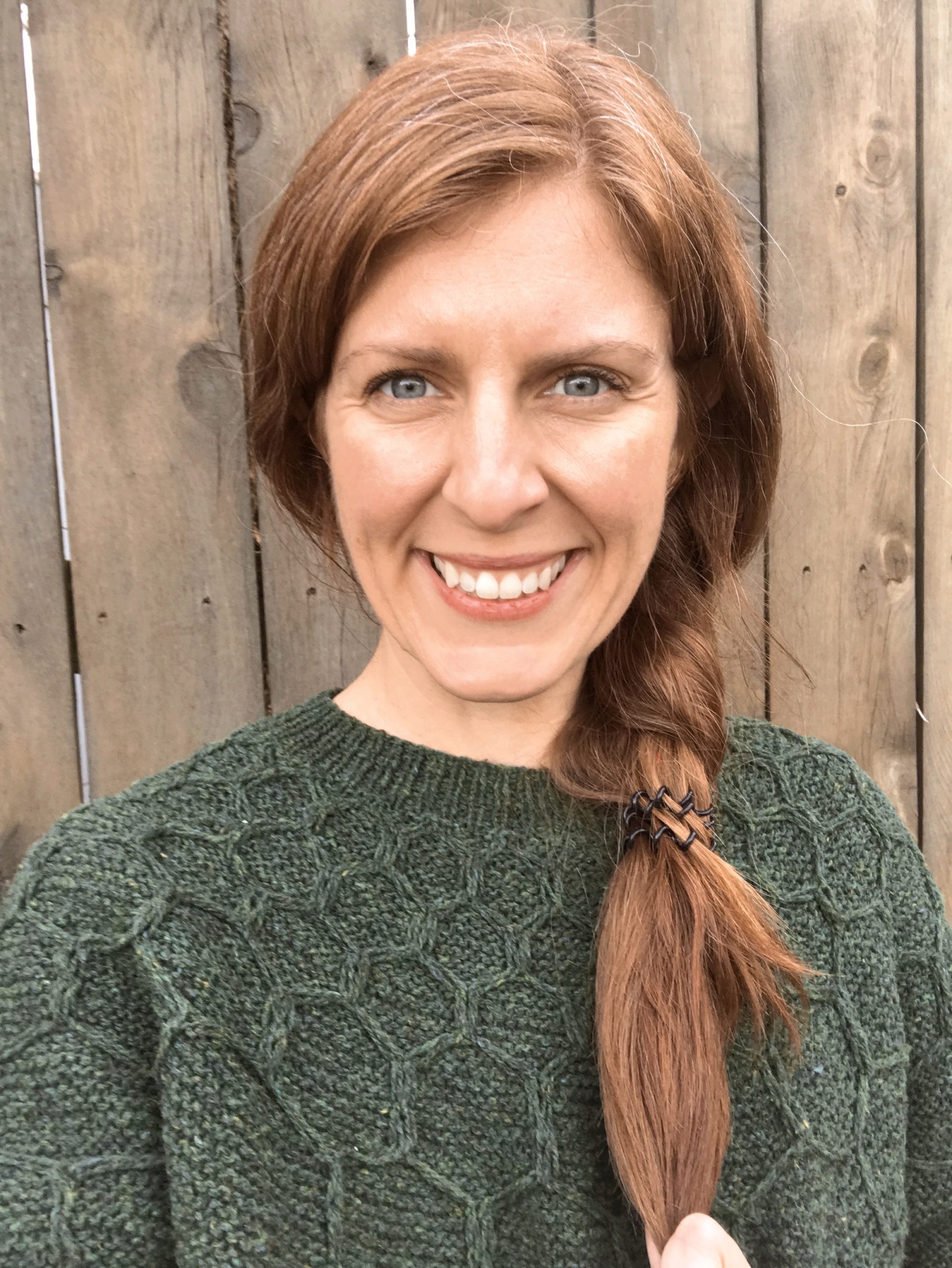Have you considered going back to school for Occupational Therapy but have some concerns about starting grad school in your 30’s? It’s totally understandable if you do. Let’s break down some of the common concerns and answer some questions!
Starting my OT program at 30 wasn’t part of the original plan. Now that I think about it, I guess I didn’t really have a plan until I found this career. After graduating from undergrad I worked, traveled, moved across the country and went back to school for second BA (and dropped out). You can read about it here. It took all of that to finally find my path. So, in my third decade, I found myself moving across the country yet again to start a graduate program at NYU.
The decision to uproot your entire life, re-enter school and possibly lose your income is not an easy one to make. You might have a partner, child, debt, or roots in your community. But even with all that, if you have a desire to become an Occupational Therapist (or back to school in general) you should pursue it.
It’s Never Too Late To Start Grad School:
It’s never too late to go back to school and educate yourself. Whether you are 30, 40, or 50, it’s never too late to pursue something that you are passionate about. If the thought keeps entering your mind, you should take the time and space to review it.
Age Gives you an Advantage:
At 30, you likely have gained a significant amount of life and work experience that you bring with you on this new path. It helps you connect with others, understand how people and workplaces function and suggests maturity. This offers something that younger students might not have. This really sets you apart from the hundreds of other pre-OT students who are vying for 1 of the 40-60 spots at each school. OT school is COMPETITIVE. You need every inch above the rest that you can get.
I think at 30 you also have a deeper respect for education. When I was 18-23 years old a big element of college is meeting friends, going out every night, and enjoying life. We are learning how to live. At 30, we’ve already had years to do this. While each OT program is different, they are very demanding. One of the first things they told us was to tell our family and friends we would see them again in 2 years. While that isn’t fully true, there were many occasions I turned down an opportunity because I had schoolwork or studying to do.
Occupational Therapy Fieldwork Requires Maturity:
I previously have mentioned maturity being a positive trait throughout this career. In fieldwork, I had multiple Clinical Instructors comment on my maturity (whether it be after a naked man needed help with a transfer, understanding the need for a schedule to be switched multiple times at the last minute, or when a teen with gun chargers who was living in a group home asked if I was afraid of him). At 24, I may have responded with a giggle or red face, but at 32 it didn’t phase me. P.S. no one is perfect. I definitely had moments of embarrassment. During one of my rotations at a hospital, I did laugh pretty hard when myself and my patient fell onto his bed when attempting to do a transfer. Luckily, the patient also laughed and we got right back up. The laughing actually made the situation a little lighter.
When talking to co-workers, many of those in their early 20’s who are right out of school have felt unease from parents about their age. Despite being well-educated and a good clinician, parents are concerned with having a “young” or an “inexperienced” therapist. We can’t blame them. Family members are in a very fragile state, especially when working in pediatrics. Most often they just received a diagnosis and are trying to figure out how to juggle therapies. While their thoughts may be wrong, they want what’s best for the special needs child. As an older therapist, I have never encountered this, despite being a brand new provider.
Things to consider when applying to Occupational Therapy Grad School in Your 30’s
Where to Live:
Occupational Therapy programs can be competitive so if you are open to moving, this will increase your chances of getting into school. If you are set in your current environment, I just suggest making sure your application is solid and your essay, if required, is flawless. I don’t mean to make this sound dramatic, but if you live in an area that only has 1 school, the competition increases.
If you are open to moving, I say take advantage of the opportunity! I was living in San Francisco at the time of application and applied to 3 Bay Area schools. I was accepted to one I wasn’t thrilled with, one I was waitlisted at, and another I where I was denied. Applications states included Washington, New York, and Southern California. I’m originally from New York but had never lived in the city. This was an opportunity to explore a new neighborhood and be closer to friends and family. I highly recommend choosing a place you would enjoy living in for 2-3 years, possibly more. If you have a successful fieldwork, there is a good chance you’ll be offered a position after you get licensed.
Cost and Working While in Grad School:
Before starting my Occupational Therapy program, I cried over the cost. My school (like many others) was a fairly expensive private school, I lived in a West Village apartment, and I did not work for the 3 years. I was privileged to have a mother who helped when she could and I saved money prior to moving. I moved into an expensive tiny bedroom (it fit my bed and a dresser) with my best friend but it was in an amazing location and a 10-minute walk to school. In the moment, the ease outweighed the cost. During what was a stressful 3 years, I had live-in social support, didn’t have to worry about commuting, and could easily get to Grand Central to travel to friends and family.
Working a part-time job is doable; we even had a classmate who worked 30+ hours at her job while managing everything. Your ability to continue to bring in a paycheck is highly dependent on your ability to organize, prioritize, and be comfortable with saying no to friends and family. I suggest sitting down to plot out your expenses, look at savings, and decide what you can afford.
Student Loans:
I chose to have Grad school and living expenses basically covered by student loans. I took out a lot of money and will likely be repaying them for the next 10+ years (fingers crossed for less). This is definitely something to think about. Starting school in your 30’s means less working time to pay back your loans. While student debt isn’t considered bad debt, it’s another expense to pay on top of a mortgage. I would say I wish I went to a cheaper school (state schools are fantastic and MUCH less expensive), but I met my husband and best friends while in the program and wouldn’t change that for anything.
Recommendation: Which school you go to really doesn’t matter once you get out of school. No one cares. Go to the school that makes the most sense for you. If you are able to get into a state school awesome. If you only get into a private school, analyze if waiting another year for the chance of getting into a cheaper school is worth it. Check out this article on how to pay for grad school.
Common Questions:
Q: I have a partner who won’t be able to join me if I move away. Will I survive?: While it’s so hard to be away from a loved one, 2 years go by really fast. Fieldwork can be done anywhere, you can spend extended time at “home” during those opportunities. Given our current technology, Facetime and Zoom make it so easy. When my now husband and I were dating long distances, we would spend hours on Facetime together while I would study and he read.
Q: Will I be the oldest person in my class? Likely not. And if you are, embrace it. OTs are special people. We are welcoming and inclusive. You will likely meet some of your best friends in your program. We had a wide mix of people in their 20’s and 30’s. You will quickly bond over frustrations, studying, fun labs, and group events.
Q: How hard was it to get back into student mode?: I’ll be honest at first there was a bit of a transition. But you will be thrown into the program with work on day 1. You’ll get back into the swing of things very fast.
Q: I’m married and have kids- can I handle this? I don’t have personal experience with this as I was single without children. I think it all depends on your situation. Can you afford a nanny? Are your kids in school? Do you need to have a set schedule? In my experience, our schedules changed every semester in terms of start/end times, so being okay with a changing schedule is a must. Most schools are not very flexible with frequent time off. I recently chatted with a current student who has a child. She reported that her school has been flexible with time, especially during a Pandemic.
Q: I’m over 26, will they provide Health Insurance?: Most schools will offer insurance to their grad school students, regardless of age.
Q: Will I have time for self-care? I found self-care to be a non-negotiable while in grad school, but I had to make time for it. I would get up early to go for a run or go to the school’s gym during a class break. Thankfully the other two girls in my three-some were avid gym-goers, so they were great motivation on days when I did not have it. I took a few hours on a weekend to wander my neighborhood, have a wine night, or do crafts. FYI card making is super fun to do while drinking.
Additional Blog Posts:









